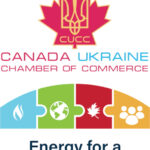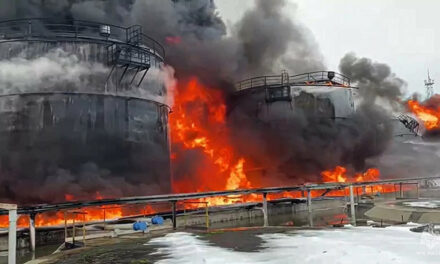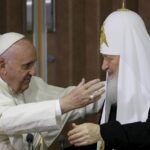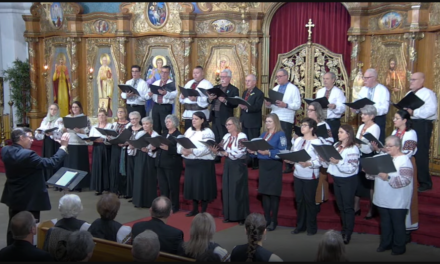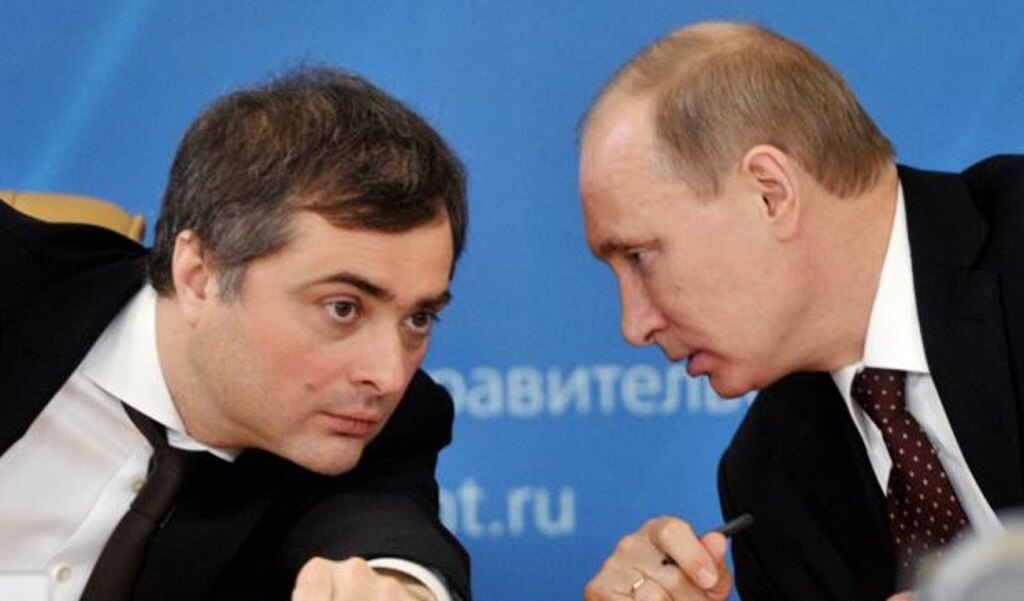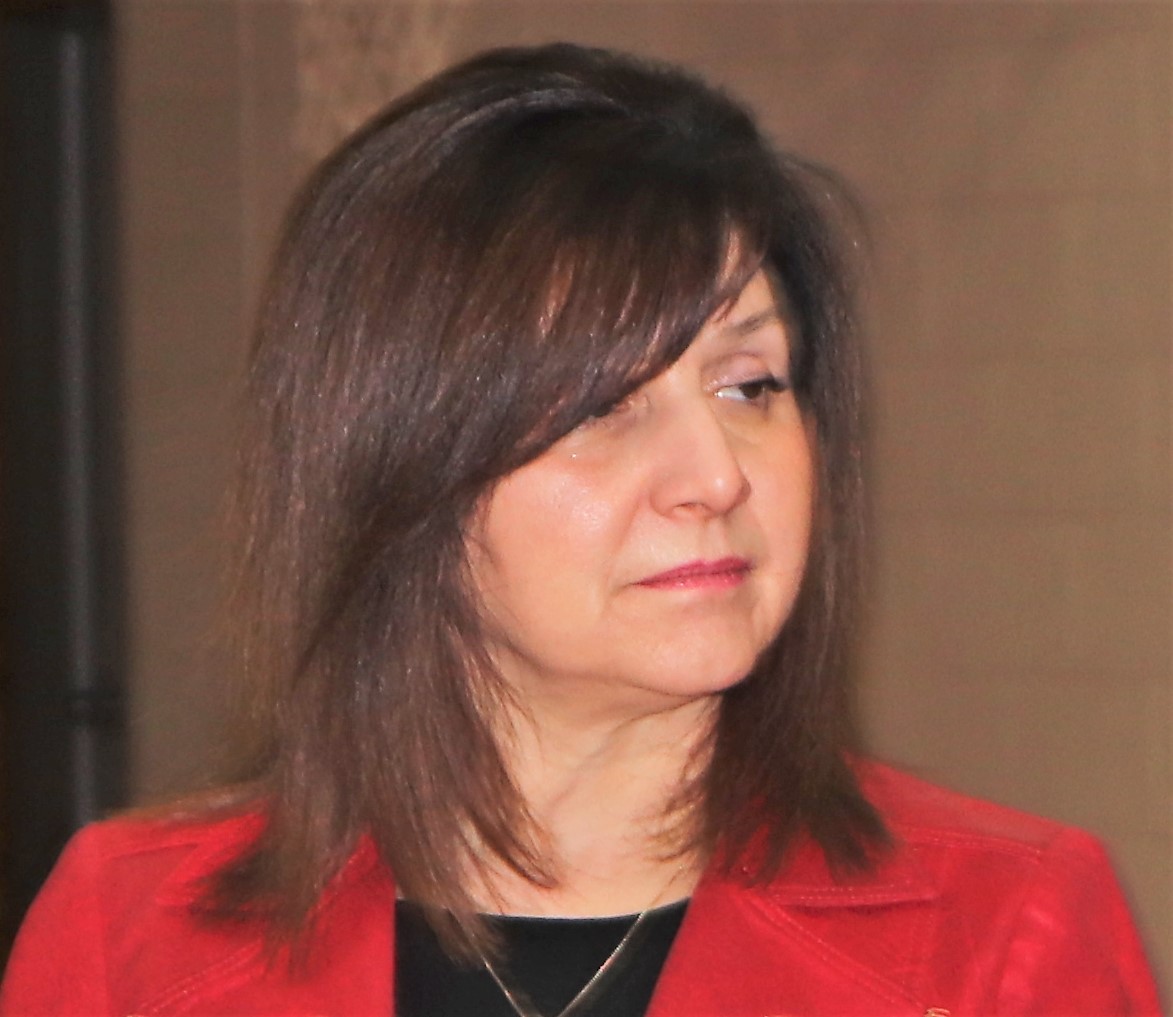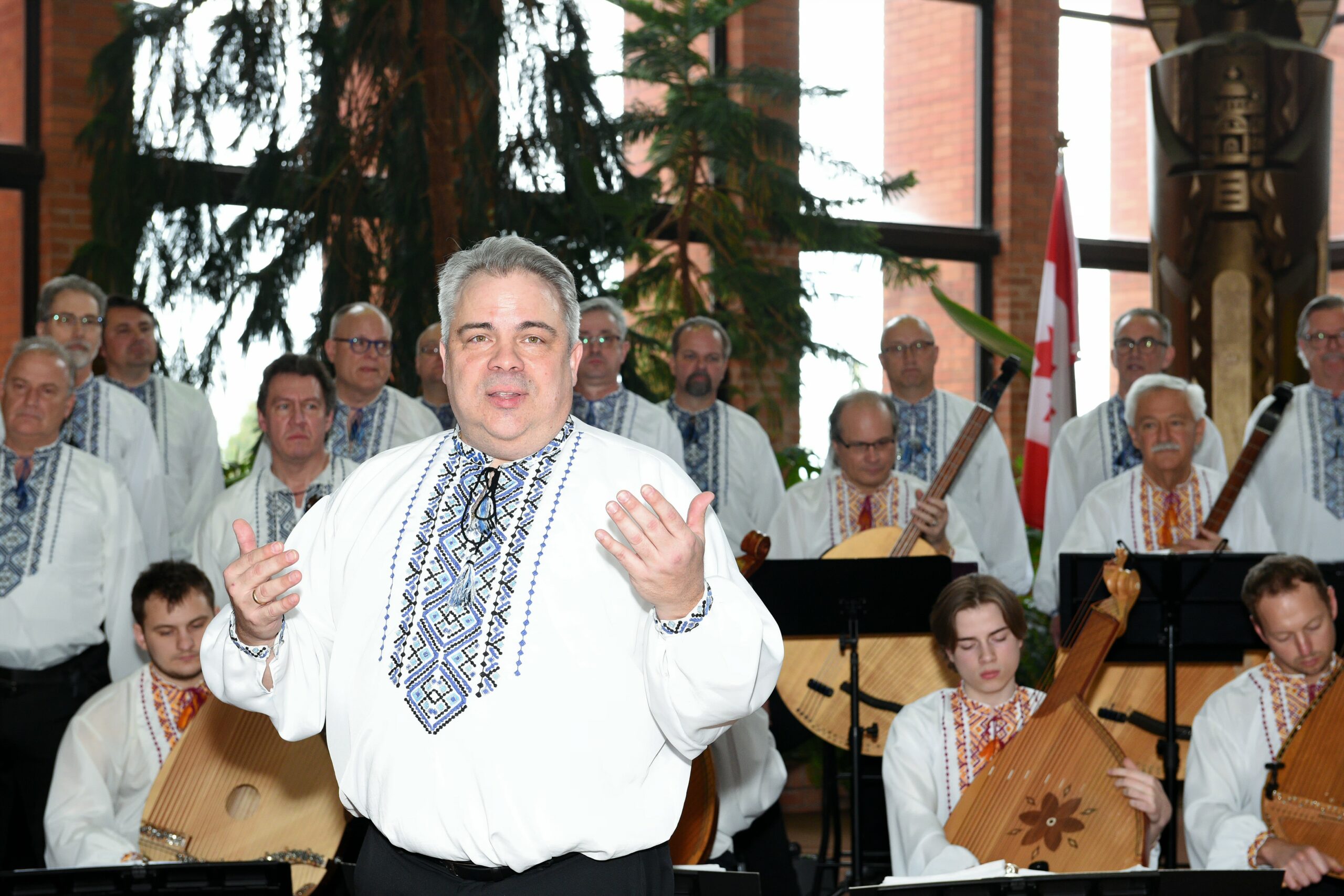Marco Levytsky, Editorial Writer.
In the first interview since his February 18 dismissal as the “gray cardinal” overseeing the Kremlin’s policy regarding Ukraine, Vladislav Surkov decided to question the very existence of Ukraine as a nation or state.
“There is no Ukraine. There is Ukrainian-ness,” Surkov told Aleksei Chesnakov, a long-time confidant of his, and published on February 26 on the Russian news site Actual Commentaries. “That is, it is a specific disorder of the mind, sudden passion for ethnography, taken to its extremes.”
Aren’t you pleased, dear readers, to discover that we all suffer from a “disorder of the mind”?
“Local history there is so bloody. It’s a muddle instead of a state…there is no nation. There is only a pamphlet: ‘The Self-Styled Ukraine,’ but there is no Ukraine. The only question is, is Ukraine already gone, or not just yet?” he rambled on.
To what extent does this reflect official Kremlin thinking? Asked by reporters about Surkov’s comments, Kremlin spokesman Dmitry Peskov said Surkov was no longer a government official, but “this is the opinion of a Russian, albeit very authoritative and competent.”
And let us not forget Vladimir Putin’s own comment to then-U.S. President George W. Bush in 2008: “You have to understand, George. Ukraine is not even a country”.
Yes, this blatant lie that Ukraine is not a country, not a nation, not a state, does not have a distinct culture, nor a distinct language, has been a mainstay of Russian mythology ever since the dawning of the Muscovite-Russian state in the 12th century.
Russian historiography claims that Moscow is the natural successor to the medieval Kyivan Rus. At that time the heartland of the state was in what is now Ukraine. The northeast Slavic tribes which merged with indigenous Finno-Ugrian ones to form the Russian nation lived on the periphery of this highly developed state. Then, in 1169, one such local warlord with the most inappropriate name of Andrey Bogoliubsky (God-Loving) sacked Kyiv, devastating it as never before, and stealing much religious artwork, which included the Byzantine “Mother of God” icon. He moved the capital to his own city of Vladimir leaving Kyiv to his brother, but lost control of that city within two years. That’s the beginning of Muscovy-Russia.
Although there was a common literary language known as Old Slavonic in Kyivan Rus, literary records already testify to substantial divergence between proto- Russian spoken in the northeast and Ruthenian/Rusyn forms of the Ukrainian language spoken in the heartland at that time. These differences were to be accentuated as Ukraine and Muscovy-Russia went their separate ways following the Mongol invasions of 1240. Ukraine was absorbed into the Grand Duchy of Lithuania, later the Polish-Lithuanian Commonwealth, while the northeast reaches of the former state paid homage to and became vassals of the Mongols.
Out of this, a small town on the fringes of the Vladimir-Suzdal Principality called Moscow, began to expand in stature and territory, while serving as tax collectors for the Mongol hordes. As it grew and gradually freed itself from the Mongol yoke, the Grand Duchy of Moscow adopted the despotic traditions of the East and established autocratic rule, in contrast to the earlier traditions of Kyivan Rus where citizens had certain right ingrained within the system of viches, or councils. The Grand Duchy morphed into the Tsardom and in the early 18th Century, the Russian Empire, usurping the name Rus in order to claim the Kyivan heritage.
When the Kozak state of Hetman Bohdan Khmelnytsky signed the Pereyaslav Treaty with the Tsardom of Muscovy, translators were needed and the ethnocultural differences between the two nations were singularly pronounced. For one thing, the Muscovite tradition of despotism clashed with the Kozak tradition of democracy. This led to clashes and the eventual dismemberment of the Kozak state.
Having taking total control Muscovite-Russian authorities banned the teaching of Ukrainian in 1804 and, in 1863 the Minister of Internal Affairs of the Russian Empire, Pyotr Valuev, issued the Valuev Circular banning religious, educational, and literary works in Ukrainian. The circular contained the famous quote that “a separate Little Russian (Ukrainian) language never existed, doesn’t exist, and couldn’t exist, and their Little Russian tongue used by commoners is nothing but Russian corrupted by the influence of Poland”. Further restrictions were placed on the Ukrainian language by the Emsky Ukaz in 1876, which completely prohibited the usage of the language in open print.
Nevertheless, Ukrainians maintained their identity and in 1917-1921 attempted to gain independence for their state. They failed but that’s also when the myth that Ukraine was simply an Austrian or German invention began circulating. The Soviets had to begrudgingly admit to a separate Ukrainian identity and created a Ukrainian Soviet Socialist Republic. But that was merely window dressing as the regime proceeded to wipe out Ukrainian national consciousness through genocide, arrests, repression and russification. They failed and Ukraine resurrected as an independent state in 1991 and has stayed that way despite Moscow’s continued efforts to undermine it.
Today’s Russian Federation reverts to the old Tsarist Muscovite myth that Ukraine is not a nation, and Ukrainian is not a distinct language, which fails to explain how a Canadian of Ukrainian origin who had no or very limited exposure to Russian has so much difficulty in understanding that language. Or why, if they are so close, was it necessary to ban all education and publications in that language.
This age-old myth is a fallacy and must be understood as such by the rest of the world. It is through the perpetuation of such historical falsehoods that Muscovy-Russia continues to destabilize Ukraine and pull the wool over the eyes of the world. Nevertheless, Ukraine has survived, is alive and will continue to grow.
Share on Social Media














